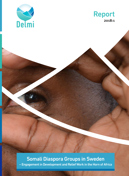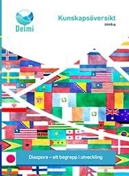"Political remittances" is a relatively new concept that refers to norms, experiences, knowledge or cash flows that contribute to political change processes such as democratization or increased gender equality. In policy documents and research on political remittances, migrants and diaspora groups are assumed to be able to contribute, for example, through knowledge and experience gained in the recipient state. Furthermore, migrants and diaspora groups originating in non-democratic states are expected to be socialized into new norms and values when living in democratic recipient states. These new norms and values are then assumed to be passed on to the countries of origin through contacts with family and friends or by the migrant / diaspora member returning and settling in their home country.
Another common assumption is that migrants and diaspora groups can also exercise political influence in their states of origin through targeted "financial remittances", ie. money that migrants send to their countries of origin. They could also, through knowledge and experience, contribute both to peace processes and to a more long-term peacebuilding after, for example, a civil war.
Some overall conclusions and recommendations
- Migrants or diaspora groups can influence developments in a more democratic direction in developing countries.
- Not only positive but also negative impulses such as radicalization or extreme political attitudes can be transferred between countries.
- Financial remittances can contribute to peace processes or even fuel conflicts.
- The political effects of the actions of diaspora groups and migrants are strongly context-dependent.
- A broader study of relevant diasporas in Sweden and their desire and opportunities to act and influence is recommended.
About the authors
The Knowledge Review, Political Referrals (2015:2) is written by Emma Lundgren Jörum and Åsa Lundgren, both researchers in political science at Uppsala University.
Picture by stokpic from Pixabay.




